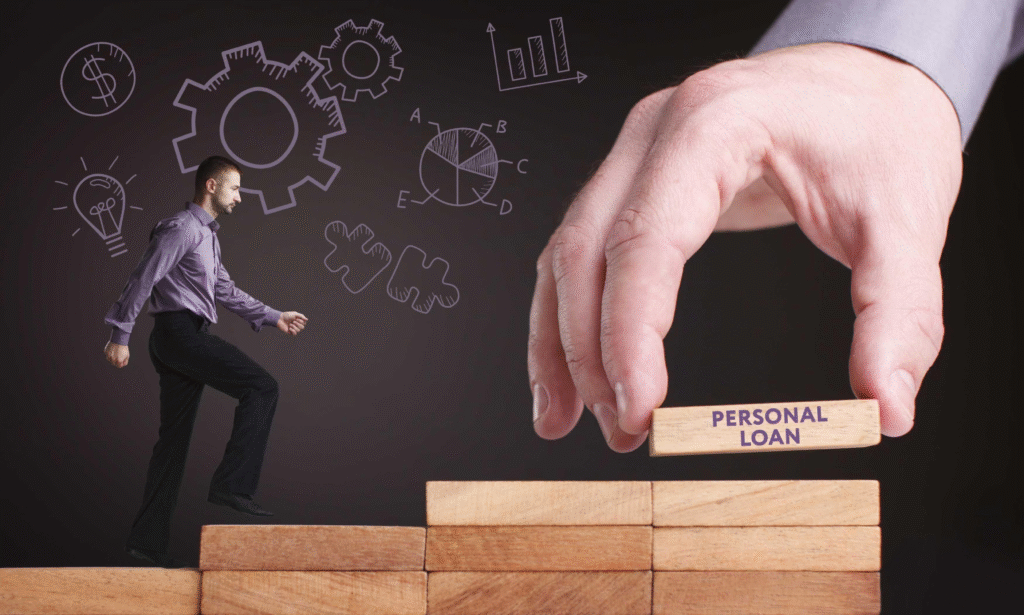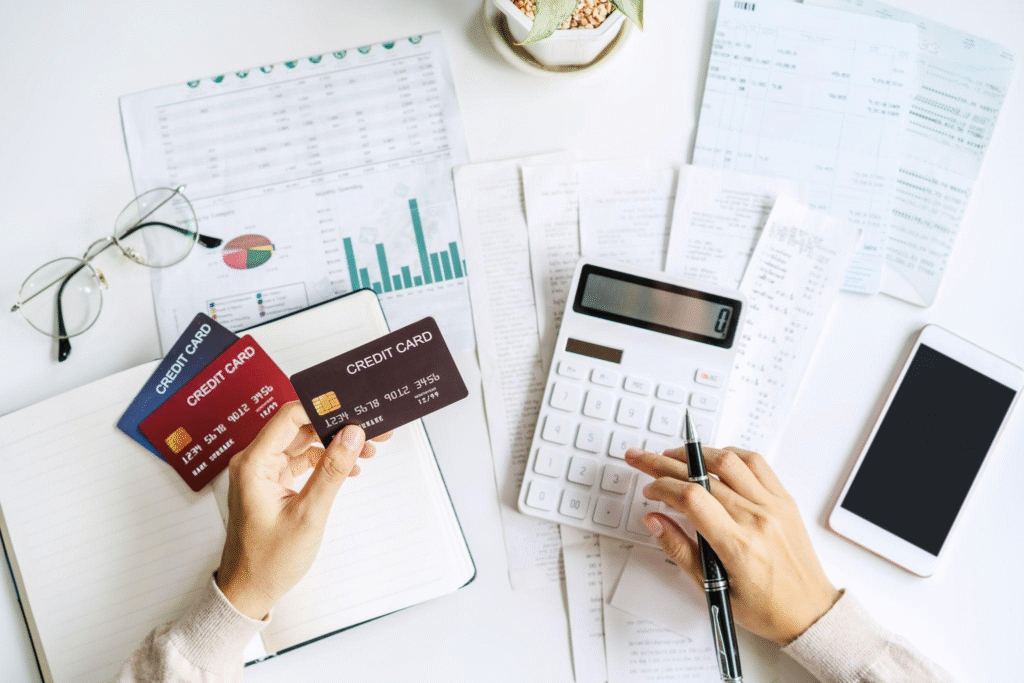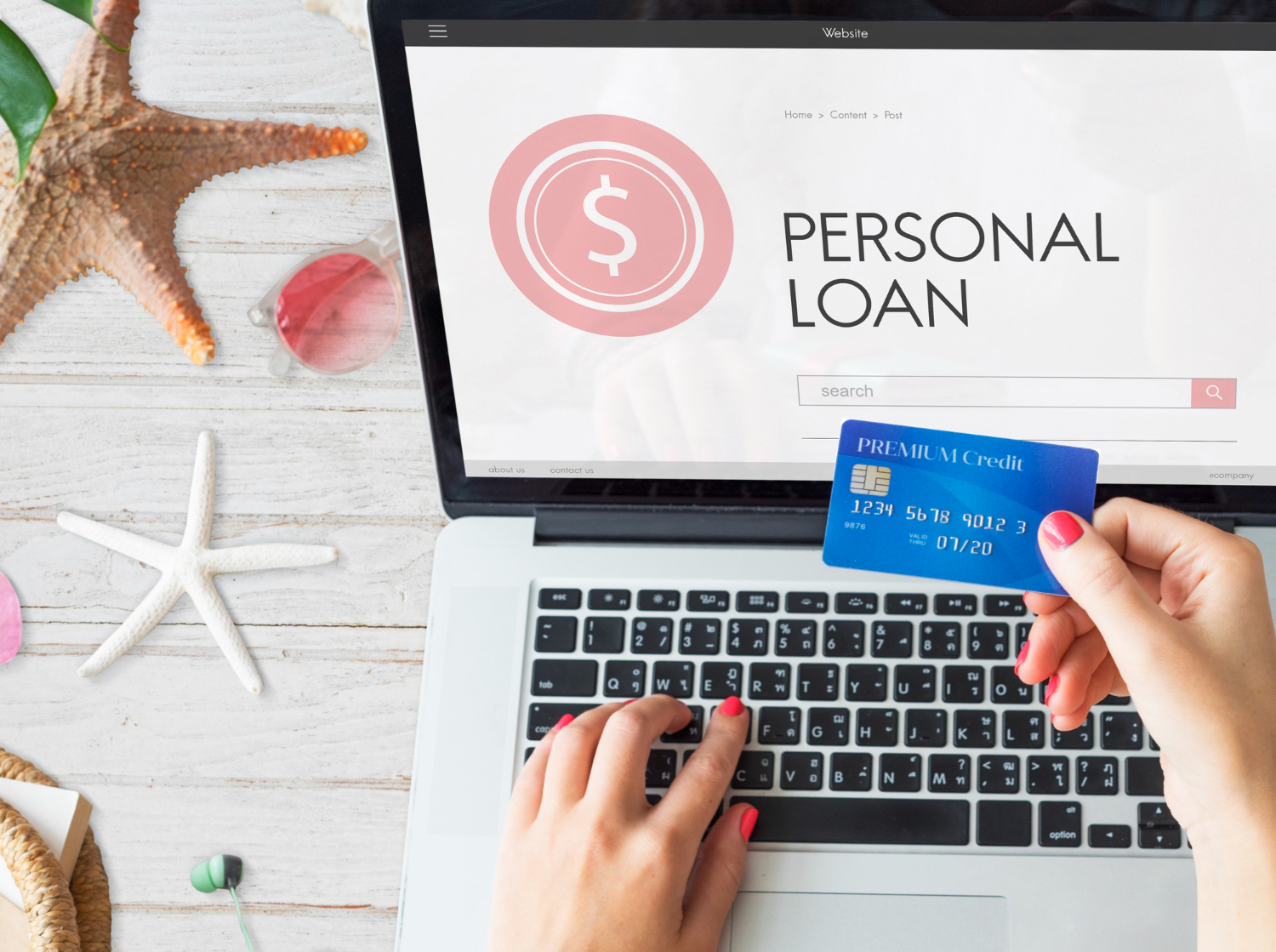In today’s fast-paced world, managing finances wisely is more important than ever. Whether you’re planning a vacation, consolidating debt, handling an emergency, or making a large purchase, you may find yourself asking: “Should I use a personal loan or a credit card?”
Both options offer flexibility and can be useful in different financial scenarios — but each comes with its own set of pros and cons. Understanding the key differences between personal loans and credit cards will help you make an informed decision that aligns with your financial goals.
In this article, we’ll break down how personal loans and credit cards work, compare the costs and risks, and guide you toward the right choice based on your unique needs. Let’s dive in!
Key Takeaways
Personal loans offer lower interest rates, fixed payments, and are great for large, planned expenses.
Credit cards provide flexible borrowing, rewards, and fast access to funds — but can be costly if balances are carried long-term.
Your choice should depend on how much you need to borrow, how fast you can repay, and your financial habits.
Using either responsibly can improve your credit score and financial health.
Always compare interest rates, fees, and terms before deciding — and create a repayment plan to avoid long-term debt.
What Is a Personal Loan?

A personal loan is a fixed-amount loan that you borrow from a bank, credit union, or online lender and pay back in equal installments over a set period of time — usually 12 to 60 months.
Key Features:
- Fixed loan amount (usually $1,000 to $50,000)
- Fixed interest rate (can be variable in some cases)
- Fixed monthly payment
- Fixed term (loan length)
- Lump-sum disbursement
Personal loans can be either secured (requiring collateral) or unsecured (no collateral required). The interest rates depend on your credit score, income, debt-to-income ratio, and other factors.
Common Uses:
- Debt consolidation
- Home improvements
- Large purchases
- Medical expenses
- Vacations
- Wedding expenses
What Is a Credit Card?
A credit card is a revolving line of credit that allows you to borrow funds up to a set limit, repay some or all of the balance, and borrow again.
Key Features:
- Flexible spending limit (usually $300 to $20,000 or more)
- Variable interest rate (APR)
- Monthly minimum payment required
- No set payoff date (unless you pay in full)
- Ongoing access to available credit
If you pay your balance in full each month, you can avoid paying interest entirely — making a credit card a convenient short-term borrowing tool.
Common Uses:
- Everyday purchases (groceries, gas, dining)
- Emergency expenses
- Travel
- Balance transfers
- Short-term borrowing
Personal Loan vs Credit Card: Key Differences
| Feature | Personal Loan | Credit Card |
|---|---|---|
| Type of Credit | Installment loan (fixed-term) | Revolving credit (ongoing) |
| Interest Rates | Fixed or variable (typically lower than CC) | Typically variable (higher on average) |
| Payments | Fixed monthly payments | Minimum payment + variable balance |
| Term | 1–5 years | No set term (ongoing) |
| Borrowing Limit | Lump-sum up to $50K+ | Credit limit — can be reused |
| Fees | Possible origination fee | Possible annual fees, late fees |
| Credit Impact | Can improve credit mix and utilization | Affects credit utilization ratio |
| Best for | Large planned expenses, debt consolidation | Small, everyday purchases, emergencies |
When Should You Choose a Personal Loan?
Debt Consolidation
If you have multiple credit card balances with high interest rates, a personal loan can help you combine those debts into one loan with a lower fixed interest rate. This simplifies repayment and can help you save money on interest.
Large Purchases
For significant expenses like home renovations, weddings, or medical procedures, a personal loan allows you to borrow a larger amount and pay it back over time — often with a lower rate than a credit card.
Predictable Payments
If you prefer a set monthly payment and a clear end date for your loan, a personal loan offers predictability. You’ll know exactly how much you owe each month and when the loan will be fully paid.
Building Credit Mix
A personal loan can diversify your credit profile (which can help your credit score), especially if you primarily use revolving credit.
When Should You Use a Credit Card?

Short-Term Borrowing
If you can pay off your balance within a month or two, using a credit card may be more convenient and less costly — especially if your card has a 0% introductory APR.
Rewards and Perks
Many credit cards offer cashback, travel points, or other rewards for everyday spending. If you pay your balance in full each month, you can benefit from these perks without paying interest.
Emergency Access to Funds
A credit card gives you instant access to funds for unexpected expenses, such as car repairs or medical bills. No loan application or waiting period required.
Building Credit History
Responsibly using a credit card (keeping balances low, making on-time payments) helps build a strong credit history and improves your credit score.
Credit Score Impact: How Each Affects Your Credit
Both personal loans and credit cards can impact your credit score in positive and negative ways:
Personal Loan:
Adds to your credit mix
Shows installment loan responsibility
Can cause a temporary credit score dip from hard inquiry
Missed payments negatively impact credit score
Credit Card:
Helps build payment history
Keeps credit utilization ratio low (if balances are low)
Long credit card history improves score
High utilization can lower score
Missed payments significantly damage score
Real-Life Scenarios: Which Is Better?
Consolidating Credit Card Debt
Winner: Personal Loan
You’ll likely get a lower interest rate and a set payoff plan.
Paying for a Vacation
Winner: Credit Card (if paid in full)
You can earn rewards and avoid interest by paying off your balance quickly.
Medical Emergency
Winner: Depends on situation
- Short-term need → Credit card
- High cost & longer-term repayment → Personal loan
Home Renovation
Winner: Personal Loan
A fixed loan amount and term make budgeting easier.
Pros and Cons
Personal Loan Pros:
- Lower interest rates (compared to credit cards)
- Fixed payments
- Clear payoff timeline
- Good for large expenses
Personal Loan Cons:
- Not suitable for small, everyday expenses
- May have origination fees
- Hard credit inquiry required
Credit Card Pros:
- Flexible borrowing
- Rewards and perks
- Emergency use
- No origination fee
Credit Card Cons:
- Higher interest rates
- Risk of revolving debt
- Can impact credit utilization ratio
How to Choose: Personal Loan or Credit Card?

Ask yourself the following questions:
- How much money do I need?
- Large expense → Personal loan
- Small purchase → Credit card
- How quickly can I repay?
- Short term → Credit card (if within 1–2 months)
- Longer term → Personal loan
- What is my credit score?
- Good to excellent → Better loan rates and credit card offers
- Poor → Might need to shop for secured loan or card options
- Do I want fixed payments?
- Yes → Personal loan
- Flexible → Credit card
Understanding the Psychology of Debt: How Borrowers Think
When choosing between a personal loan and a credit card, it’s helpful to understand the psychological effects of each option on spending habits.
Credit Cards:
- Offer a revolving balance — which may encourage overspending.
- Minimum payments can mask the true cost of borrowing.
- Easy access to credit may lead to “buy now, worry later” behavior.
Personal Loans:
- Come with a clear repayment schedule — encouraging responsible borrowing.
- Fixed term reminds borrowers that the debt is finite.
- The one-time lump sum often promotes more thoughtful use of funds.
Takeaway: If you struggle with controlling spending, a personal loan’s structure may help you stay disciplined.
Over months or years, small unpaid balances balloon — costing far more than the original purchase. In contrast, personal loans charge interest on a declining balance, making costs more predictable and affordable.
Personal Loan vs Credit Card for Debt Snowball or Avalanche Method
Both debt repayment strategies work with either option:
Snowball Method:
- Pay off smallest debt first for quick wins.
- Helps build motivation.
Avalanche Method:
- Pay off highest-interest debt first to save more money.
- Often more mathematically efficient.
A personal loan may simplify either method by consolidating debts into one monthly payment — making it easier to track progress.
Using a Personal Loan to Improve Financial Habits
For people trying to break the cycle of credit card debt, a personal loan can:
Create a “fresh start” with one payment.
Eliminate high-interest revolving debt.
Help shift toward planned, intentional borrowing.
Reduce stress by offering a clear payoff date.
The Impact of Utilization Ratio on Your Credit Score
One of the biggest advantages of using a personal loan to pay off credit cards is the impact on your credit utilization ratio — which makes up 30% of your FICO credit score.
Credit Utilization Ratio Formula:
Total Credit Card Balances÷Total Credit Limits×100=UtilizationRatiotext{Total Credit Card Balances} ÷ text{Total Credit Limits} × 100 = Utilization RatioTotal Credit Card Balances÷Total Credit Limits×100=UtilizationRatio
If you can reduce utilization below 30%, your credit score may improve significantly.
How to Shop Smart: Comparing Personal Loan Offers
Before accepting a personal loan:
- Compare APRs — not just the interest rate, but the full cost including fees.
- Look for prequalification options with a soft credit check.
- Watch out for origination fees — some lenders charge up to 8%.
- Read the fine print — are there penalties for early repayment?
- Choose the right term — longer terms mean lower payments but higher total interest.
How to Use Credit Cards Wisely
If you decide to stick with a credit card, here are best practices:
Pay in full every month to avoid interest.
Keep utilization below 30% of credit limit.
Set up automatic payments to avoid missed deadlines.
Take advantage of rewards — but only on purchases you’d make anyway.
Avoid “minimum payment traps” — always pay more when possible.
Emerging Alternatives: Personal Lines of Credit and Buy Now, Pay Later (BNPL)
Beyond personal loans and credit cards, there are other emerging borrowing tools:
Personal Line of Credit:
- Revolving credit like a credit card
- Typically lower rates than credit cards
- Often requires strong credit
Buy Now, Pay Later (BNPL):
- Used for online purchases
- Pay in 4 interest-free installments
- Easy to use — but can lead to fragmented debt
These options may sometimes offer more flexibility — but also come with risks of encouraging excessive borrowing.
The Bottom Line: Your Financial Personality Matters
Ultimately, the best tool for you depends on:
Your current Financial situation
How disciplined you are with debt
Your credit score
How soon you can repay
The total cost of borrowing
There’s no one-size-fits-all — but being informed helps you make the smartest choice for your future.
Also Read : How Can You Get Quick Loan Cash When You Need
Conclusion
When deciding between a personal loan and a credit card, it comes down to your financial needs, goals, and habits.
- If you need to borrow a large sum of money and want predictable payments, a personal loan is often the better choice.
- If you need short-term flexibility and can pay off balances quickly, a credit card may work well — especially if you earn rewards or benefit from 0% APR promotions.
The key is to be honest about your repayment abilities and use each tool wisely to avoid falling into unnecessary debt. No matter which option you choose, responsible financial management is what will ultimately lead to success.
FAQs
Which has lower interest rates — personal loans or credit cards?
Typically, personal loans offer lower interest rates, especially if you have good credit.
Can I consolidate credit card debt with a personal loan?
Yes! Many people use personal loans to consolidate high-interest credit card balances and pay off debt faster.
Will applying for a personal loan hurt my credit?
It may cause a temporary dip due to the hard credit inquiry, but on-time payments will help improve your credit score over time.
Is it bad to use a credit card for large purchases?
Not if you can pay off the balance quickly. Otherwise, interest can accumulate rapidly.
Can a personal loan improve my credit score?
Yes, by diversifying your credit mix and showing a strong payment history.
Which is better for emergencies — personal loan or credit card?
A credit card offers faster access to funds for emergencies, but if the expense is large, a personal loan may be better for affordable long-term repayment.
Should I get both a personal loan and a credit card?
It depends on your needs. Many people have both — using a credit card for small purchases and a personal loan for big expenses or debt consolidation.
